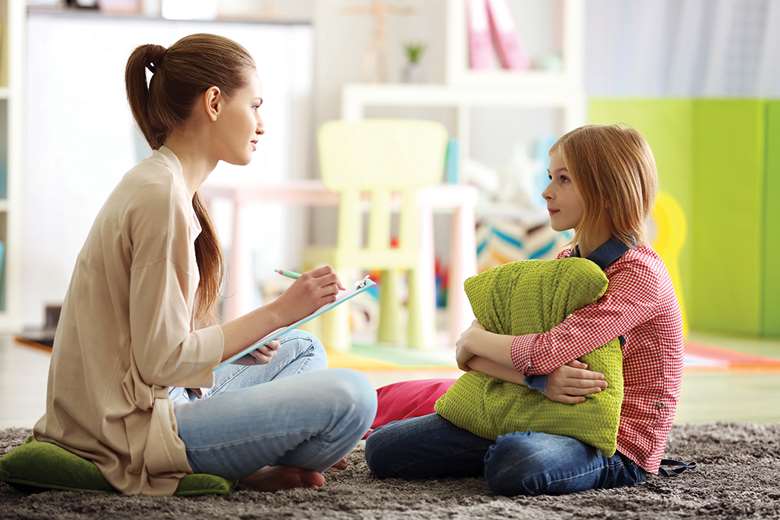Checks for looked-after children
Alison O’Sullivan
Tuesday, March 27, 2018
Characteristics of mental health assessments for children in care are analysed as pilots set for launch.

In late 2016, Lord Nash announced plans to "test new approaches to mental health assessment for looked-after children".
At the time, the expert working group for looked-after children - convened by the Social Care Institute for Excellence on behalf of the Department for Education and Department of Health - was part way through its work looking at the mental health needs of children in care.
The proposed pilots of the assessment, required when children enter care, will build upon work for Future in Mind and the expert group. The pilots are due to begin in the summer.
The tender for the work to support the six to 10 pilot areas has been published and closes on the 8 April.
The education select committee heard evidence in 2016 from the National Children's Bureau and NSPCC, and concluded that the initial health assessment on entry to care is variable in quality and too often poor. In addition, the expert group found that they tend to focus too heavily on physical health.
Identifying needs
The pilots are intended to find better ways to identify mental health needs and spot children who need specialist care and support. They will also test how such assessments might be carried out and who could undertake them.
The expert group made strong and clear recommendations in relation to assessment. There was unanimous agreement about the characteristics of a good assessment. It should:
- Be child centred
- Engage young people and their carers
- Capture a picture of the child in their world from all those involved in their life
- Be professionally robust
- Look beyond the presenting symptoms or behaviour
- Be kept up to date and availableto those who need to understandthe child to support them.
Importantly, assessment is not an event, but should be an ongoing process of understanding that follows the evolving needs of a child.
The initial assessment may also identify concerns that should lead to more in-depth specialist assessment. The starting point for initial assessment will be different for every child: for some, little will be known about them and their circumstances; for others, they may already have a diagnosed mental health condition and be receiving treatment. Upon admission to care, children may be at any point on this spectrum.
Given that we know nearly half of children in care have a diagnosable mental health condition, levels of need will be high and it is imperative that we spot that need quickly. Which type of screening or assessment should take place and when is more complicated.
The widely used Strengths and Difficulties Questionnaire (SDQ) - essentially a screening tool - is mandatory and yet, according to NSPCC research, was only completed in three-quarters of local authority areas. The quality is also variable.
Additionally, the expert group found that the SDQ is unable to detect post-traumatic stress disorder, attachment disorganisation and developmental issues such as autistic spectrum disorder. So, arguably, even the most widely-used tool is not fully fit for purpose.
Continuity of care
Good plans must flow from the initial assessment.
All plans for a child should address their emotional health and wellbeing needs, and say what should be done to support them - from the very first care plan submitted to court, through every review and into plans to support leaving care or transition to adult support.
It is the responsibility of not only those with a direct care or support role to engage with that ongoing assessment, but also those with a decision making, planning or quality assurance role such as independent reviewing officer and virtual school head teacher. The social worker must hold the ring on all of this.
There is much riding on these pilots. Getting the initial assessment correct, making sure it is meaningful for the child and their carers and feeds into plans to support the child is a tall order (see box).
But the last word must go to the young people who were such able members of the expert group. They pointed out that it is more important how assessments are completed than by whom. They want to see assessments that reflect the strengths that young people have, as well as the challenges that they face.
We must surely remember this as we strive for better ways of working for the future.
Key questions the assessment pilots must address
- What are the best tools or frameworks in use? Are they sensitive to prevalent issues for children in care?
- Who is best placed to complete the initial assessment? What skills are needed? What quality of relationship with the child is needed?
- How are young people best involved? How do young people get feedback on help they might need?
- How can we involve carers and others to know the child well? How will they know how best to help?
- How does the initial assessment feed into an ongoing understanding of the needs of the child? How will it feed into all of the plans to support the child during their time in care?
- How does the assessment capture the strengths of the child? Does it address wider wellbeing?
Alison O'Sullivan is former co-chair, the expert working group for looked-after children




